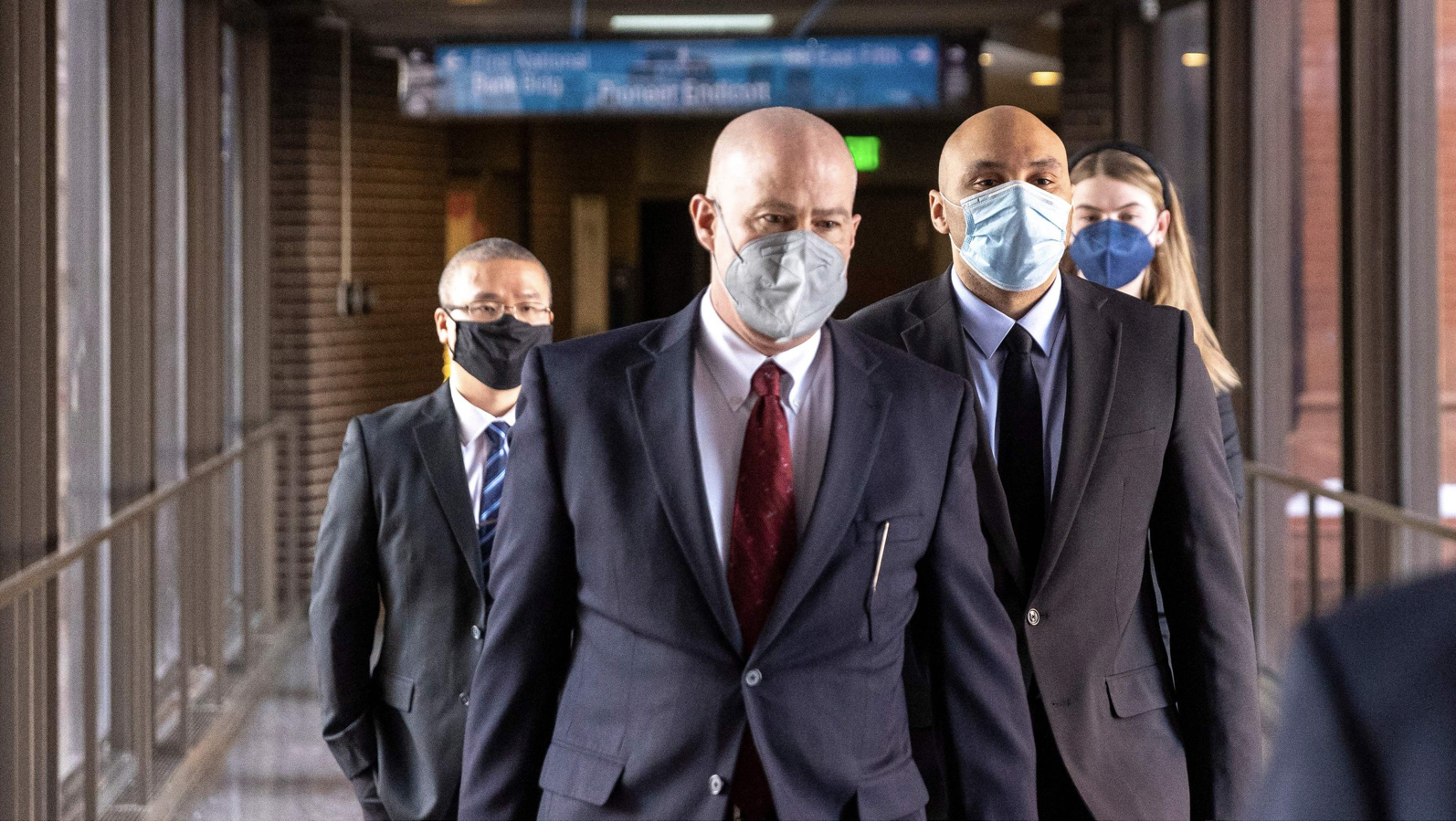Jury selection for the third and likely final trial over the death of George Floyd was canceled Monday after one of the defendants pleaded guilty and another waived his right to a jury trial.
Former Minneapolis police officer J. Alexander Kueng pleaded guilty to aiding and abetting second-degree manslaughter just before jury selection began Monday. Meanwhile, former officer Tou Thao waived his right to a jury trial and agreed to proceed with a trial by stipulated evidence, meaning Judge Peter Cahill will deliver a verdict.
Kueng, who was charged with aiding and abetting both manslaughter and murder in Floyd’s death, will have the more serious charge dropped and serve 3 1/2 years in prison as part of his plea deal.
Prosecutors and defense attorneys for Thao, who rejected a plea deal earlier this year, will submit written closing arguments and agreed-upon evidence to Cahill by Nov. 17, and Cahill will determine his guilt or innocence within 90 days. If Thao is convicted on the lesser charge, prosecutors have agreed to drop the aiding murder charge and Thao would likely be sentenced to about four years in prison.
The joint trial of Thao and Kueng was the third over Floyd’s death and likely the last. Both former officers are already serving time on federal convictions of violating Floyd’s civil rights. Kueng will serve his state and federal sentences concurrently.
Here’s what we know:
What were Kueng and Thao charged with?
The former officers were charged with aiding and abetting second-degree manslaughter and murder in Floyd’s death. Chauvin was convicted of murder last year. While the charges and conviction of Chauvin were rare, legal experts say the prosecution of the officers who failed to stop him is even less common.
Kueng was seen in bystander videos helping restrain Floyd as former officer Derek Chauvin knelt on his neck for more than nine minutes during the attempted arrest May 25, 2020. Thao kept bystanders away as Floyd, who was handcuffed and lying flat on his stomach, repeatedly said, “I can’t breathe.”
As part of his plea agreement, Kueng admitted to holding Floyd’s torso during the arrest, that he knew restraining a handcuffed person in the prone position created a substantial risk, and that the restraint of Floyd was unreasonable.
What happened to the other officers?
Thomas Lane: The former officer was sentenced to three years in prison Sept. 21 after pleading guilty to aiding and abetting second-degree manslaughter. He held down Floyd’s legs during the arrest.
Derek Chauvin: He wasconvicted on state charges of murder and manslaughter as well as federal charges of violating Floyd’s civil rights. He’s serving the 22½ -year state sentence concurrently with a 21 year-federal sentence. Chauvin has appealed the state conviction, though it is unlikely he’ll succeed (90% of appeals are denied across the United States).
Where does the officers’ federal case stand?
Thao, Lane and Kueng were sentenced earlier this year after being convicted in federal court of violating Floyd’s civil rights in February. Kueng was sentenced to three years, Thao to 3½ years and Lane was sentenced to 2½ years.
After the civil rights conviction, Lane took a plea deal on his state charges, which allows him to serve his state sentence in federal prison.
Why was the trial delayed?
The former officer was supposed to stand trial with Chauvin, but Hennepin County Judge Peter Cahill separated the trials because of COVID-19 restrictions and postponed them to allow the federal case against the former officers to proceed.The trial was postponed again and set to begin in June, but Cahill delayed the trial once more to protect the defendants’ right to a fair trial citing publicity around Lane’s guilty plea and the federal civil rights conviction of Thao, Kueng and Lane.
Floyd’s death sparked changes in Minneapolis policing. What’s next?
A state investigation launched in the wake of Floyd’s murder found the Minneapolis Police Department engaged in a pattern of racial discrimination. Human Rights Commissioner Rebecca Lucero hoped to negotiate a consent decree with the city to foster more systemic change.
The Justice Department is also conducting a federal investigation into policing in Minneapolis, which is not yet close to a conclusion. Investigators are examining use of force, misconduct allegations and the department’s accountability measures.
Since Floyd’s death, city leaders have made a number of changes to the department’s policies and practices including banning no-knock warrants in most situations. City Council members and residents pushed to replace the department with a public safety unit, but voters rejected the proposal last year.
Contributing: The Associated Press









